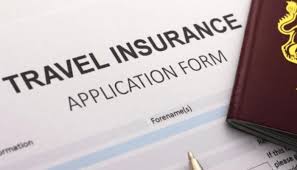What is total loss car insurance?

Total loss car insurance is coverage that kicks in to help pay for the cost of replacing your car after it is totaled. Generally, it refers to full coverage policies, which include collision and comprehensive insurance. These types of coverage will help pay for damage to your vehicle, and depending on your policy limits, may cover the cost of your totaled car. Each state has a total loss formula that helps individuals and insurers determine when a car is totaled.
What is total loss?
Total loss car insurance provides coverage for when a vehicle is damaged beyond reasonable repair in a covered claim. To determine whether your vehicle is damaged beyond reasonable repair, your auto insurer will assign a claims adjuster to assess your vehicle’s value by checking for damages and considering other variables that depreciate value. The company then uses this information in conjunction with market value data to determine how much your car is worth. The number they arrive at is called the actual cash value (ACV). If the car is worth less than repairs would cost and has total loss coverage, the insurance will make a payout for the totaled vehicle.
Compare auto insurance rates
Answer a few questions to see personalized rates from top carriers.
Are you currently insured?
Yes
No
Are you insuring multiple vehicles?
Yes
No
Are you a homeowner?
Yes
No
ZIP Code
100211
Please enter a valid 5-digit ZIP Code
Continue
Powered by Coverage.com (NPN: 19966249)
Advertising disclosure
Insurance disclosure
How is total loss value calculated?
There are two primary methods for determining when a car is a total loss:
Total loss threshold: When a vehicle’s total loss value reaches a specific percentage of the car’s market value, that is the total loss threshold. Each state has its own total loss threshold, which could be a certain percentage or the total loss formula.
Total loss formula (TLF): The total loss formula is the vehicle’s fair market value less its salvage value. The insurer can deem a vehicle a total loss if repair costs meet or exceed the TLF figure.
Full coverage car insurance usually includes comprehensive and collision coverage, which can help pay to replace a vehicle that has been totaled in events that are covered on your policy. If your car is financed, you may want to consider gap insurance to cover the difference between what you owe and what your car is valued at after a total loss event.
Total loss threshold by state
What happens if your car has been declared a total loss?
If you receive a vehicle total loss declaration from your insurance company and don’t want to dispute the decision, there are a few things to know about the total loss process. If you are currently leasing your vehicle, you should also contact the leasing company and inform them that it has been totaled. The steps below describe what you should do if your car is declared a total loss.
Remove license plates. Remove both the front and back license plates and take them with you. Leaving your plates where someone might take them can lead to complications down the road. The safest approach is to maintain possession of the license plates until they are no longer on your record with the DMV.
Remove personal belongings. While removing your license plates, look inside of the vehicle as well. Check the dash, glove compartment, door and seat pockets, trunk and anywhere you might have left possessions. Once you turn your keys in, you may not be able to recover anything that you left in it.
Give the keys to your claims adjuster. Once you have finished getting your plates and possessions from the car, you will need to hand over all sets of keys to your claims adjuster. When you do, they will provide you with several documents to complete.
Complete the required paperwork. Fill out and sign all documents that have been provided to you by your claims adjuster. You will likely no longer be responsible for the vehicle by the end of the process, as most people decide to transfer the car title to their insurer. However, you could choose to keep the vehicle and refurbish it enough to qualify for a rebuilt title if you’d like to drive it again.
How to dispute a total loss
Suppose your vehicle is declared a total loss and you disagree with that assessment. In that case, it is possible to dispute the decision. When you dispute these decisions, you are attesting that your auto insurer undervalued your vehicle and declared it totaled prematurely. Here are the steps you may want to consider to initiate a dispute:
Assemble documents and vehicle information. To prove your vehicle’s actual market value, you will want to gather any documents you have that reflect this. These might include the original receipt of sale, as well as notations on the various features and add-ons that your car has.
Assess current market information on your vehicle. Using a resource like Kelley Blue Book, find out the average current market value of your vehicle make and model. This tool is excellent for providing ballpark figures. Yet, it may not be precise enough on its own to dispute the total loss declaration. For exact figures, you could get an appraisal.
Notify the insurer of your stance and submit your evidence. Contact your claims adjuster and inform them that you think they undervalued your vehicle and that you are disputing the total loss declaration. Provide them with your documentation and notes, including the information you gathered on market value.
Request an appraisal. If your auto insurer remains unconvinced at this point, you may request an in-person appraisal of your vehicle. Many of these determinations are made based on paperwork and known variables (like make and model) without an in-person appraisal.
Consider legal action. If after you have completed all of the steps described above and you and the insurance company still cannot agree on whether your vehicle was appropriately valued, you may consider filing a complaint with your state’s department of insurance. This process can be lengthy and complicated, but may be worth pursuing if you believe your auto insurer is acting in bad faith.
How much does a total loss pay out?
Total loss car insurance settlement payouts depend on the value of your vehicle. When your insurance company determines whether to declare the car totaled, they are concerned with its actual cash value. This is what the vehicle is worth after considering any damage or depreciation factors. Once all of the necessary factors have been taken into account, the insurance company will pay you the actual cash value, assuming the claims process is successful.
Can you keep a car that’s a total loss?
Yes, you can keep a car that’s a total loss. This is called retaining salvage. Since the vehicle is now worth less because of the total loss, the vehicle is only worth its salvage value, which is substantially less than its market value. You may have to remove comprehensive and collision coverage on your vehicle until you can prove that the vehicle has been repaired. Keep in mind that if you do so, you won’t be able to get the same value if the vehicle is damaged again.
If you decide to keep your car after a total loss, the insurance company will notify the Department of Motor Vehicles (DMV) to issue a salvage title. This shows the vehicle was deemed a total loss and received substantial damage. It can be difficult to insure a salvage vehicle, so it may be worth it to take the steps to get a rebuilt title if you plan to repair the vehicle and sell it or reinsure it.






